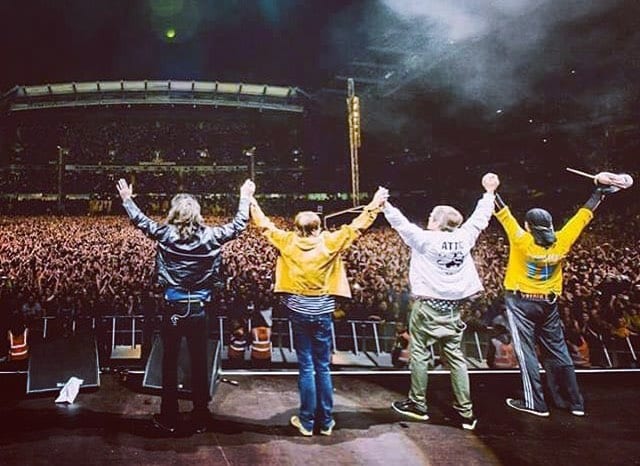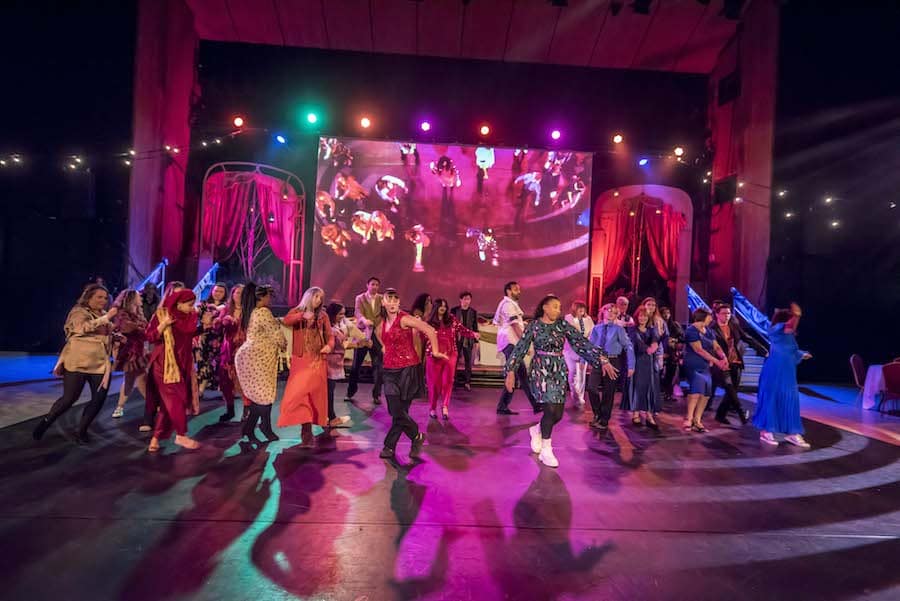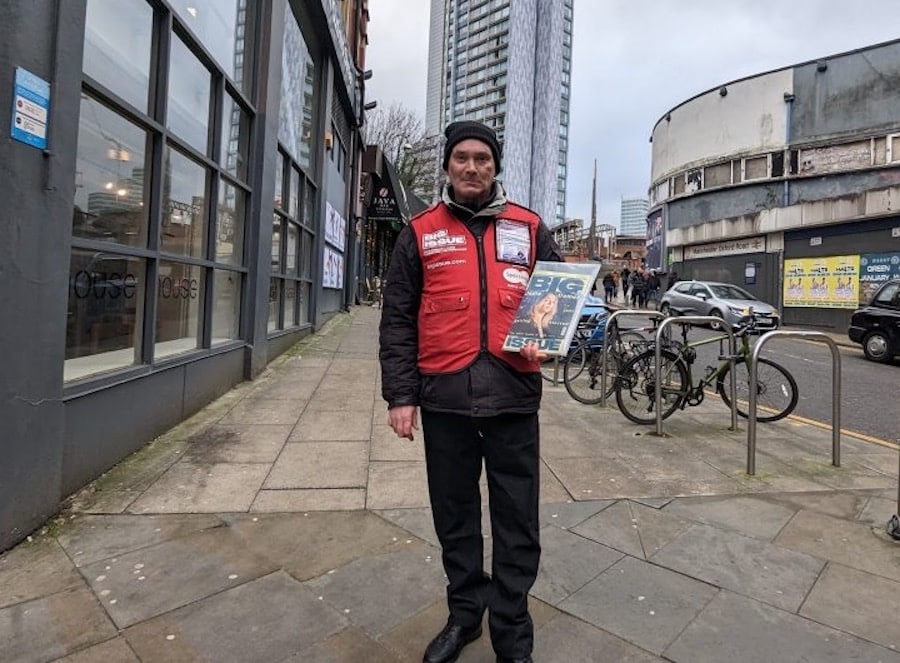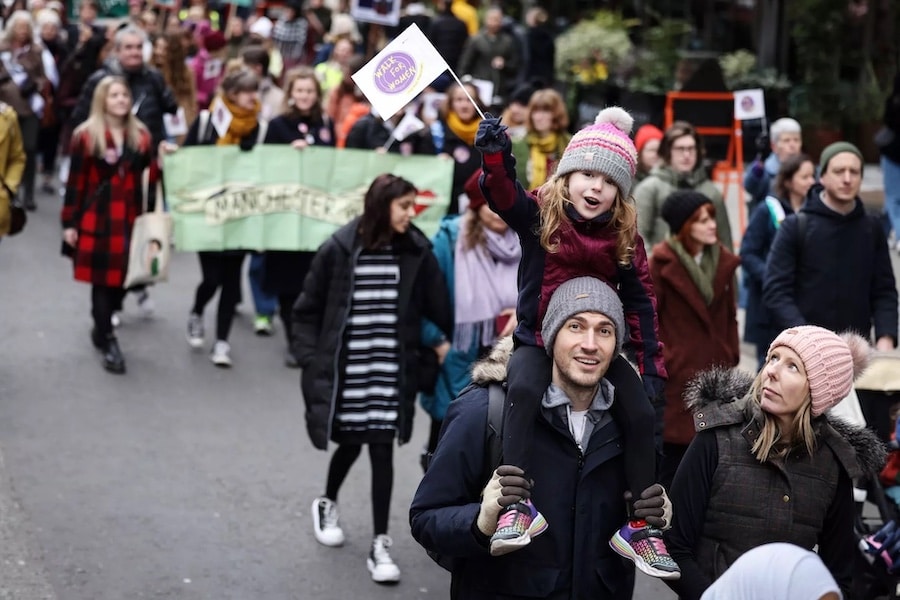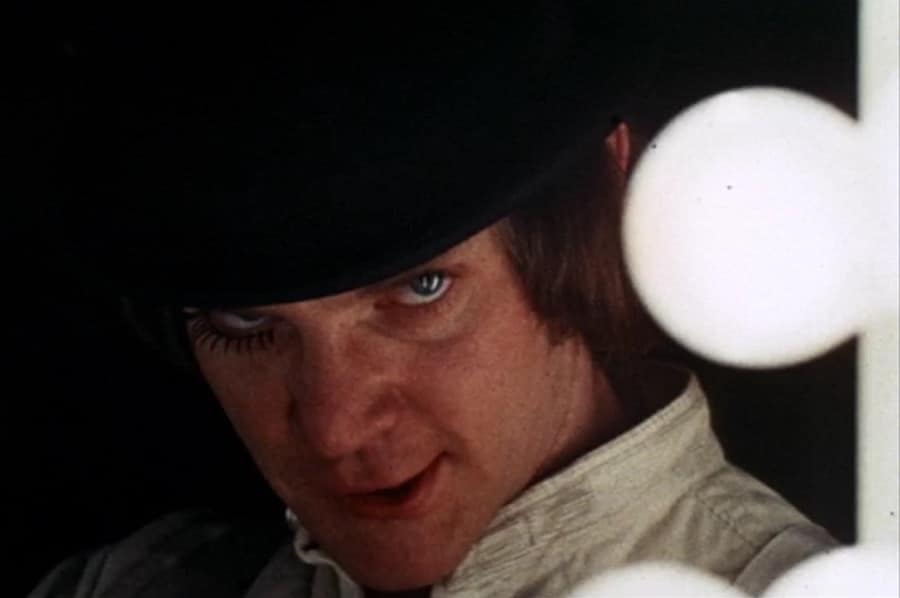Review: A Number at 53two is ‘must-see, thought provoking masterpiece’
- Written by Glenn Meads
- Last updated 9 months ago
- City of Manchester, Theatre
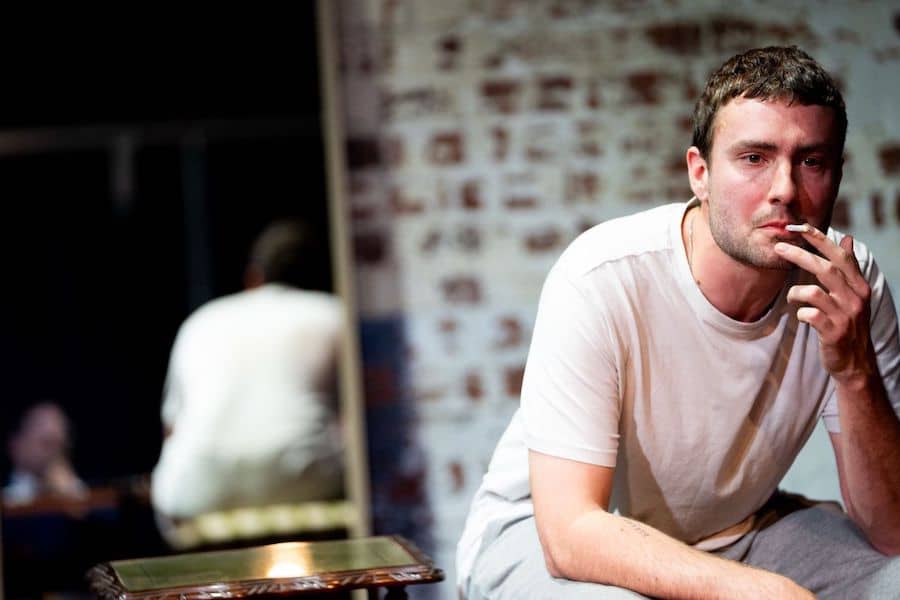
A Number by Caryl Churchill is one of those plays that seems to be staged regularly.
There are (ahem) ‘a number’ of reasons for that.
It is under an hour in length, it is a two-hander and it explores cloning, mixed with some pertinent ideas about our disposable society.
How many of us have a drawer filled with mobile phones, that we do not use because we pined for a newer model and got one?
How much food do we chuck into the bin that we do not eat, because we decide to eat out and get something more palatable?
And controversially, if we have a child and their life does not pan out how we would have liked, do we ever feel the secret desire to have them replaced? Even if we have never uttered them?
A Number at 53two
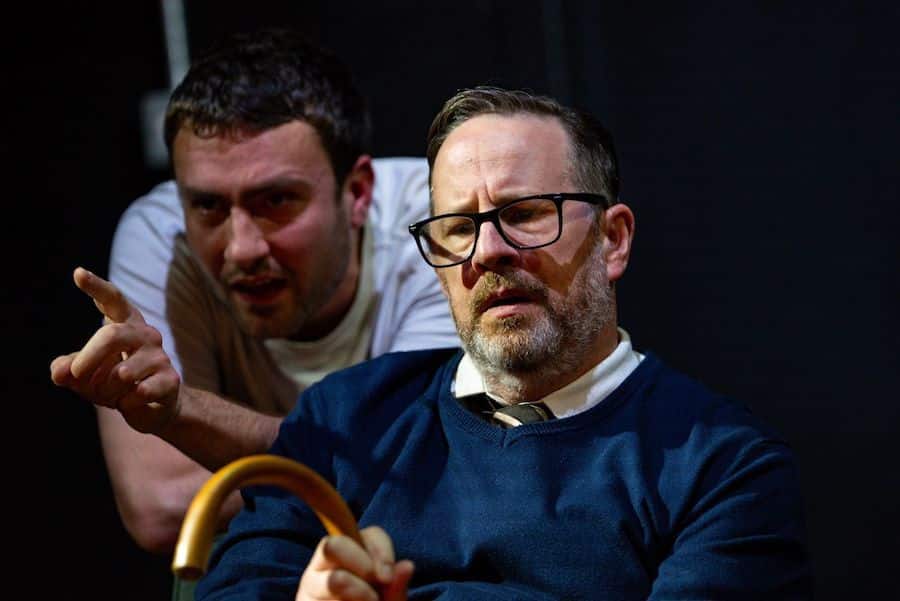
When I think about cloning, I always think about Barbra Streisand grieving for her beloved Coton de Tulear dog Samantha. What did she do? She had two new puppies -Miss Violet and Miss Scarlett who are both clones of her favourite dog, as she wanted her to live on. Weird, or cute?
I mention this because the skill of Churchill’s writing is that you witness two characters discussing the pros and cons of creating a duplicate (but not quite) and you find yourself completely engaged from the minute that this inventive, thought-provoking and darkly comic production begins.
Twenty-two years after it was written, Artificial Intelligence is no longer the stuff of Science Fiction, we can/and are using it. So does this play still hold up?
The cleverness of the writing and the themes that it explores means that you end up questioning what is deemed to be real and what is fake.
And it says some important things about child welfare, which remains a huge issue when you begin to look at the term care leaver and see young people disposed of like an old phone, as they fend for themselves when they turn 18.
Charities become their parents and mentors and pick up the pieces.
Versatility is required to play multiple versions of someone who looks the same but has different facial tics, body language and experiences.
The wonderful Tom Ryder
The wonderful Tom Ryder grabs this opportunity and runs rings around the stage, seeking each version and warming up before he emerges like a newborn baby with a fully formed personality. He manages to be fast, furious, and frightening one minute and completely vapid without anything to give or say the next.
The two Bernards have questions for this father – Salter (played with aplomb by Joe Simpson) and these merge into ideas which may float around your mind, as you watch Jess Gough’s gripping production. I sat in awe as Ryder plays two versions – an angry young man, who feels rejected (the original), and Bernard 2 – who is frightened and questioning why he exists. And lastly Michael, another cloned son – who does not feel it is strange, eerie or weird that there are many versions of him roaming around. He feels nothing, aside from car bumper sticker political views, which you could read on people’s X or Facebook profiles, alongside the hashtag Be Kind. You laugh at his indifference, black comedy at its finest.
Joe Simpson as the excellent Salter
Joe Simpson is excellent as Salter, the man with all the answers but none of the control. He has unleashed something and he knows it, and once the clone is out of the bag, it becomes a whirling dervish, which is all-consuming and leaves you looking over your shoulder.
Jess Gough directs this perfectly pitched production and she makes some plucky choices which pay off handsomely. As you watch Tom Ryder pacing around this intimate space, his character switches to become more chilling as a result. Having the audience opposite each other means that the awkward laughter at the darkest of moments feels like an audience on the BBC’s Newsnight sniggering as a Conservative MP clone says: “We are sticking to the plan.”
And Fletcher Davies Rushton’s lighting gives the piece a sense of urgency, as we send in the clones and hear them out.
I love a piece of theatre where you can see the whites of someone’s eyes, and as I saw Tom Ryder fall deathly silent, smiling malevolently, as the first Bernard, it reminded me of why I love small spaces in grassroots theatres in Manchester. You are involved, you are part of the piece and you don’t want to miss a thing.
Tickets for A Number at 53two
A Number is an absolute must-see and as I sat and watched this the day after a washout of a General Election announcement, it made me realise something, due to the power of live theatre. Things can only get better.
A Number is at 53two until 24th May and can be booked here and the best availability at the moment is tonight.
But you better be quick.
- This article was last updated 9 months ago.
- It was first published on 23 May 2024 and is subject to be updated from time to time. Please refresh or return to see the latest version.
Did we miss something? Let us know: [email protected]
Want to be the first to receive all the latest news stories, what’s on and events from the heart of Manchester? Sign up here.
Manchester is a successful city, but many people suffer. I Love Manchester helps raise awareness and funds to help improve the lives and prospects of people across Greater Manchester – and we can’t do it without your help. So please support us with what you can so we can continue to spread the love. Thank you in advance!
An email you’ll love. Subscribe to our newsletter to get the latest news stories delivered direct to your inbox.
Got a story worth sharing?
What’s the story? We are all ears when it comes to positive news and inspiring stories. You can send story ideas to [email protected]
While we can’t guarantee to publish everything, we will always consider any enquiry or idea that promotes:
- Independent new openings
- Human interest
- Not-for-profit organisations
- Community Interest Companies (CiCs) and projects
- Charities and charitable initiatives
- Affordability and offers saving people over 20%
For anything else, don’t hesitate to get in touch with us about advertorials (from £350+VAT) and advertising opportunities: [email protected]

LOWRY’s Quays Theatre gets a plush new look thanks to award
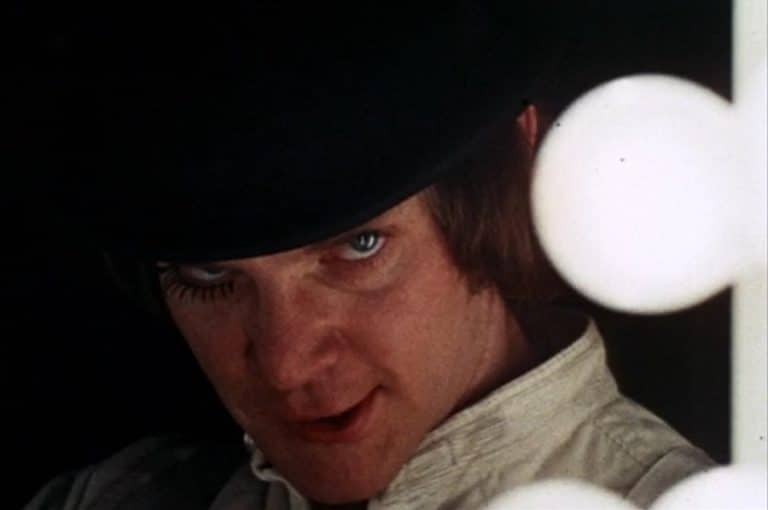
What is the legacy of Manchester’s most controversial (and maybe best) novel?

Big Issue, bigger heart: Manchester comes together for Colin

